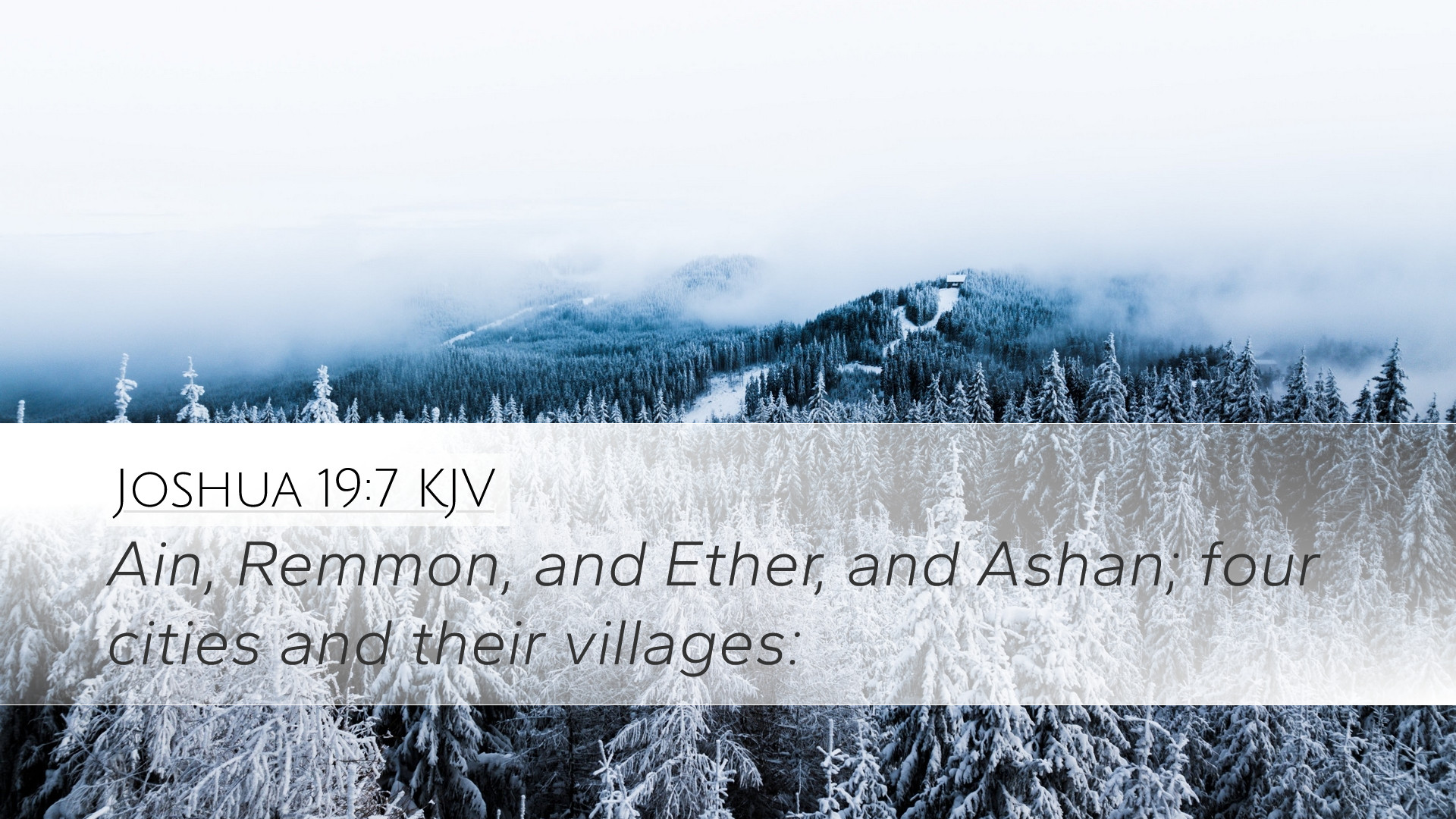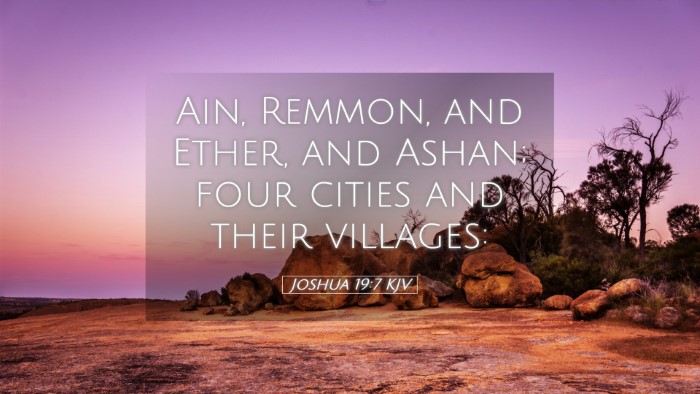Bible Commentary on Joshua 19:7
Verse Context: Joshua 19:7 deals with the allotment of land to the tribe of Dan as part of the divisions of Canaan. This passage illustrates the historical and theological significance of the inheritance given to the tribes of Israel.
Text of Joshua 19:7
"And Kedemah, and Jearib, and the rest of the cities of Dan, were the cities of the tribe of Dan."
Commentary Overview
This verse encapsulates the final proclamation of land allotment for the tribe of Dan, which is essential not only for understanding the historical context of Israel’s settlement in Canaan but also for reflecting on God's faithfulness to His promises regarding the land.
Insights from Commentaries
-
Matthew Henry
Land Allotment and Implications: Henry emphasizes that this allotment signifies the fulfillment of God's promise to the Israelites. The specific cities named, including Kedemah and Jearib, are reminders that God's promises are not vague but concrete. Every city represents a blessing and inheritance.
Theological Significance: Henry points out that the careful delineation of territories reflected God's sovereign plan for His people. The land was not allocated randomly but was part of divine providence, thus showing God's control over the events in Israel’s history.
-
Albert Barnes
Geographical and Historical Context: Barnes provides valuable geographic context, noting the importance of each city mentioned. He explains the strategic locations of these cities for Dan's defense and economic activities, illustrating the tribe’s integration into the social and political landscape of Canaan.
Spiritual Lessons: He also reflects on spiritual lessons that can be drawn, such as the importance of claiming one's inheritance in Christ. Just as each tribe received their land, believers today should recognize the spiritual gifts and territories they are called to claim.
-
Adam Clarke
Cultural and Social Insights: Clarke expounds on the cultural implications of the cities of Dan. He highlights the interactions between the tribes and how such relationships were essential for the cohesiveness of Israel. Understanding the socio-political dynamics of these cities enriches the interpretation of the tribal allotments.
Reflections on Faithfulness: Clarke underscores the importance of remaining faithful to God despite the challenges faced. The inconsistency in the tribe's subsequent history serves as a warning and an encouragement to remain steadfast in their covenant with God.
Themes and Applications
1. Fulfillment of God’s Promises
The passage reinforces the theme that God is faithful to His commitments. Just as the Israelites received their physical inheritance, believers can rest assured in their spiritual inheritance through Jesus Christ.
2. The Importance of Geography in God's Plan
Understanding the geographical context offers deeper insights into the narrative of the Israelites. The tribe of Dan's location would play a crucial role in later interactions and conflicts, highlighting God's foresight in planning.
3. The Call to Claim Our Inheritance
As modern believers, this passage encourages us to engage actively with our inheritance in Christ. Just as the tribes needed to claim their lands, we must also engage in our spiritual walk and take hold of the gifts and callings God has placed in our lives.
4. Warnings from Historical Precedents
The subsequent history of the tribe of Dan serves as both an encouragement and a warning. Their failures remind believers to remain faithful and vigilant in their covenant relationship with God.
Conclusion
Joshua 19:7 is more than a mere record of land division; it is a profound declaration of God's faithfulness to Israel, a reminder of the importance of our inheritance, and an encouragement for believers to remain steadfast. The insights from public domain commentaries provide a rich tapestry of understanding that can help pastors, students, and theologians alike to delve deeper into the significance of this passage.


